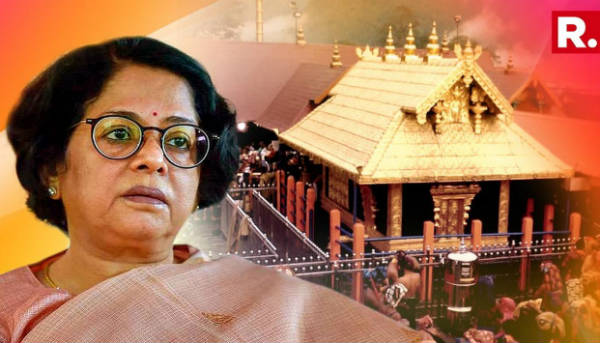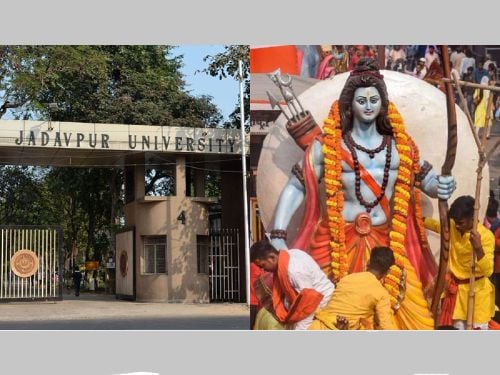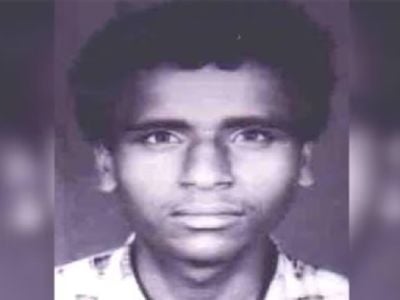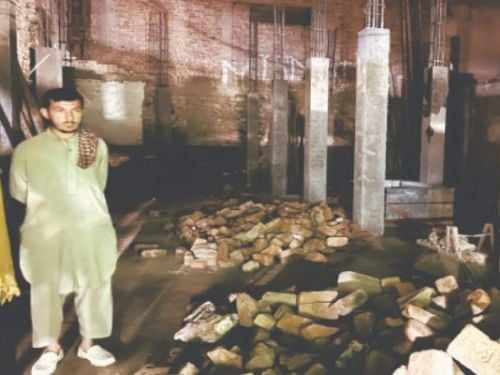
New Delhi : Although the Supreme Court constitution bench by a majority of 4:1 demolished the gender barrier at Sabarimala temple by allowing entry of women of all age group but interestingly the dissent opinion came from the lone woman judge on the bench Justice Indu Malhotra who upheld the practice and appealed for judicial restraint in interfering in religious matters.
Justice Malhotra said that worshippers of Lord Ayyappa formed a separate religious denomination and the practice of not allowing women belonging to 10-50 age group was part of the their essential religious practises which was protected under the constitution.
“Judicial review of religious practises ought not to be undertaken, as the Court cannot impose its morality or rationality with respect to the form of worship of a deity. Doing so would negate the freedom to practise one’s religion according to one’s faith and beliefs. It would amount to rationalising religion, faith and beliefs, which is outside the ken of Courts,” she said.
Justice Malhotra said that if any practise in a particular temple could be traced to antiquity and is integral to the temple, then it must be taken to be an essential religious practise of that temple and courts should not interfere in it.
“In the present case, the character of the temple at Sabarimala is unique on the basis of centuries old religious practises followed to preserve the manifestation of the deity, and the worship associated with it. Any interference with the mode and manner of worship of this religious denomination, or sect, would impact the character of the Temple, and affect the beliefs and practises of the worshippers of this Temple,” she said.
“The right to equality claimed by the petitioners under Article 14 conflicts with the rights of the worshippers of this shrine which is also a Fundamental Right guaranteed by Articles 25, and 26 of the Constitution. It would compel the Court to undertake judicial review under Article 14 to delineate the rationality of the religious beliefs or practises, which would be outside the ken of the Courts. It is not for the courts to determine which of these practises of a faith are to be struck down, except if they are pernicious, oppressive, or a social evil, like Sati,” she said.
“In the present case, women of the notified age group are allowed entry into all other temples of Lord Ayyappa. The restriction on the entry of women during the notified age group in this Temple is based on the unique characteristic of the deity, and not founded on any social exclusion. The analogy sought to be drawn by comparing the rights of Dalits with reference to entry to temples and women is wholly misconceived and unsustainable,” Justice Malhotra
“Worship has two elements – the worshipper, and the worshipped. The right to worship under Article 25 cannot be claimed in the absence of the deity in the particular form in which he has manifested himself,” she said.
Source : TOI

 Jadavpur Univ revokes permission to celebrate Ram Navami on campus after granting it
Jadavpur Univ revokes permission to celebrate Ram Navami on campus after granting it Chhattisgarh: Naxal top commander along with 28 other Naxals killed in a joint operation
Chhattisgarh: Naxal top commander along with 28 other Naxals killed in a joint operation Andhra Pradesh: Farooq kills mentally challenged Hindu man for insurance money
Andhra Pradesh: Farooq kills mentally challenged Hindu man for insurance money Pakistan: Ancient Hindu temple in Khyber Pakhtunkhwa demolished for commercial complex
Pakistan: Ancient Hindu temple in Khyber Pakhtunkhwa demolished for commercial complex 2 ISIS terrorists arrested in Germany for sexual abuse of minor Yazidi children
2 ISIS terrorists arrested in Germany for sexual abuse of minor Yazidi children China, not India, interfered in 2019 and 2021 Canada elections, says Canadian panel
China, not India, interfered in 2019 and 2021 Canada elections, says Canadian panel